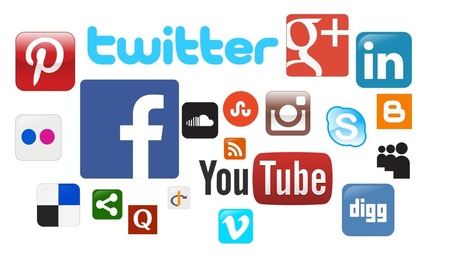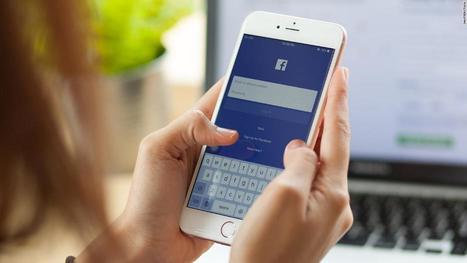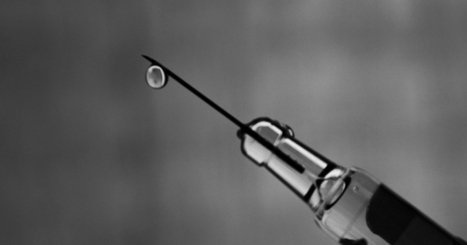If you have been paying attention to the news of late, you may have noticed headlines like…
How Pinterest Jumped Into the Fight Against Health Misinformation
– NPR, Audie Cornish, Feb. 22, 2019
Amid measles outbreaks, Facebook considering how to reduce spread of anti-vaccine content
– CNN, Jacqueline Howard, Feb. 15, 2019
YouTube pulls ads from anti-vaccination videos after questions about enforcement
– NBC, David Ingram, Feb. 22, 2019
Before you yell “censorship”, please bear with me and let’s take a look at how these social media giants came to feel it necessary to intervene on the seemingly uncontrolled dissemination of health-related “fake news” across their sites.
In the NPR interview highlighted above, Audie Cornish talks to Ifeoma Ozoma, Pinterest’s public policy and social impact manager, about the organization’s move to limit search results for health misinformation. As someone who is very passionate and enthusiastic about educating my patients and the public about the safety and efficacy of vaccines, it was a bit unsettling to read Ozoma’s take on the vaccine information situation that is happening online and on social media channels. Here is what Ozoma had to say…
“There’s an enthusiasm gap between those who save harmful health information and organizations like the CDC and WHO and American Academy of Pediatrics. And so because of that, you’re going to find more health misinformation than, say, journal articles on the virtues of vaccination or other science-based health interventions.”
An “enthusiasm gap”…. Ouch! Though it may sting a little to hear it, I know that Ozoma’s assessment of the situation is accurate. Our (the medical community) professional organizations have been lax in their defense of vaccines. We have rested on our laurels, trusting that patients will follow our medical advice just because we give it. We have assumed that the evidence will speak for itself. However, there has been an eroding of public confidence in science, in the advice of institutions, and in the medical community which is unfortunately affecting patients’ inclination to trust their physician’s recommendations without question (this warrants a whole other article… looking at the origins of mistrust and what we can do to regain our patients’ confidence).
But, like it or not, this is the situation we are in. And, while anti-vaccine groups have marketing strategies and political action committees and money and time to spend flooding the airwaves with bad information, we physicians and other medical providers have been quietly sharing our pro-vaccine message only one or two people at a time, as we see them in our exam rooms. This is no way to counter a social media machine and our efforts have to adapt.
I wrote a prior blogpost called Making Dr. Google Work for You, discussing ways that those reading health information online can try to sort out the bad information from the good so that their healthcare choices are based on science and fact, not pseudoscience and fear. I’d like to take a moment to highlight why this is so important and how common it can be for people to fall prey to misinformation. Let’s look at a couple of examples…
Example #1: “Dr.” Dena Churchill
Here is a tweet from “Dr.” Churchill instructing patients to educate their MDs regarding the “truth” about vaccines. The “Dr.” in front of her name would suggest that she is a medical doctor with the training to be able to comment authoritatively on the topic of vaccines. However, unless we dig a little deeper, which few unsuspecting lay people reading this tweet are likely to do, we would not know that Dena Churchill is a chiropractor, not a medical doctor. Unless we push past the surface, we would not know that she is currently being reviewed by her licensing board and at threat of losing her license to practice chiropractic because of her vocal misinformation campaigns regarding health-related concerns outside her scope of practice. Follow this link to see a CBC article about Churchill’s claims. She makes numerous inaccurate and dangerous statements about vaccine safety and efficacy; she suggests that wearing a bra increases the risk of cancer to an even greater degree than smoking; and she supports such loony therapies as “vaginal steaming”, like a facial for your vagina! This is not someone we can trust to give us advice about much of anything medically related. Thank you to Dr. Jaime Friedman (an actual doctor of pediatrics) and the many others online who called her out for misrepresenting her credentials and to the Nova Scotia College of Chiropractors for recognizing how dangerous statements such as Churchill’s can be.
Example #2: The American College of Pediatricians
Sounds official right? And it is an official organization, but this is not the well-respected governing body of U.S. pediatricians. That would be the American Academy of Pediatrics (the AAP). This group came to my attention via one of my medical assistants who brought me an article printed off of the internet with the following headline…
If we don’t dig deeper, this headline would certainly be worrisome. But if we look into these claims further, several disturbing facts arise that should make us question what we are reading.
- The American College of Pediatricians is a splinter group. This group of around 60 MDs, listed by the Southern Poverty Law Center as a “fringe anti-LGBT hate group,” broke away from the 66,000-member AAP when the AAP supported the adoption of children by gay and lesbian parents. The American College of Pediatricians supports sexual orientation conversion therapy for LGBTQ youth, a practice which is condemned by the American Psychiatric Association. They continue to assert, despite much evidence to the contrary, that the HPV vaccine promotes promiscuity and unsafe sexual practices. There is obviously an agenda here.
- The article raises a concern about two case studies (with 3 cases each, so a total of 6 cases) of premature ovarian failure (POF) within weeks to years following the HPV-4 vaccine (Sidenote: How can we claim something that happened years later is related to the vaccine? But, I digress). What is most important to know is that this number of 6 is occurring in the setting of hundreds of thousands, if not millions, of doses of HPV vaccine given. Also, there is a certain background of POF that happens among girls (vaccinated or not) and these suspected cases do not represent any significant increase over the background rate in the population.
- Finally, the title of this article would suggest that scientists have proven that the HPV vaccine causes POF, which is untrue. This article, using a tactic common to anti-vaccine sites, cherry picks information from the original American College of Pediatricians’ statement. What they neglect to tell you is that the statement prefaces it’s concerns with a recognition that correlation of an event does not equal causation. The College is merely requesting further study. Here is a quote from their statement…
“Adverse events that occur after vaccines are frequently not caused by the vaccine and there has not been a noticeable rise in POF cases in the last 9 years since HPV4 vaccine has been widely used.”
And this, my friends, is just the tip of the iceberg. There are so many faulty health-related and vaccine-related statements out there that look for all the world like legitimate news. How and when is the average person supposed to sort through it in order to make sense of it all? We have too easily trusted our social media news sources and taken things at face value but we can’t afford to do this any longer. The stakes are too great.
Just as we would expect our television news agencies to be responsible to the weight of evidence and to report the truth, not spreading fear and misinformation that might adversely affect the health or safety of the population, so must we demand that our social media news sources do the same. What is happening with our social media outlets is not “censorship”. It is responsible reporting.
Freedom of speech does not allow us to say things that are irresponsible and dangerous. We cannot yell “fire” in a crowded movie theatre, for example. It would put people’s lives at risk. Likewise, anti-vaccine articles that yell “conspiracy” or “danger” or “toxins”, when none of this has proven true, are putting the lives and the health of the people, particularly our children, at risk. This cannot stand.
All of that being said, I don’t want you to come away from this thinking that everything you read on the Internet is false or that physicians and other trusted medical providers are not making good faith efforts to provide reliable health content. There are some truly good sources of information out there and the Internet and social media can be an excellent resource for health advice. You just have to know where to look.
If you are seeking a reliable Twitter group to follow, consider @somedocs (Doctors on Social Media, #SoMeDocs). This is a group of real live doctors who are taking their healthcare messages to the streets of social media to offer reliable, factual information on a variety of health-related topics. For those with a more “natural” bent, check out the Facebook group NDsForVaccines. Search the Children’s Hospital of Philadelphia (CHOP) Vaccine Education Center site and the AAP’s HealthyChildren.org for highly reliable information on all vaccine-related topics.
And, at the end of the day, if you are still confused, make an appointment with your doctor or other medical provider. While offering medical advice across the airwaves is, perhaps, the wave of the future, what holds the most meaning for us as physicians and patients is the doctor-patient relationship. The ability to talk through your concerns with your trusted provider, who has your best interests at heart and who is devoted to your health and wellbeing, can be invaluable.
Via nrip



 Your new post is loading...
Your new post is loading...











